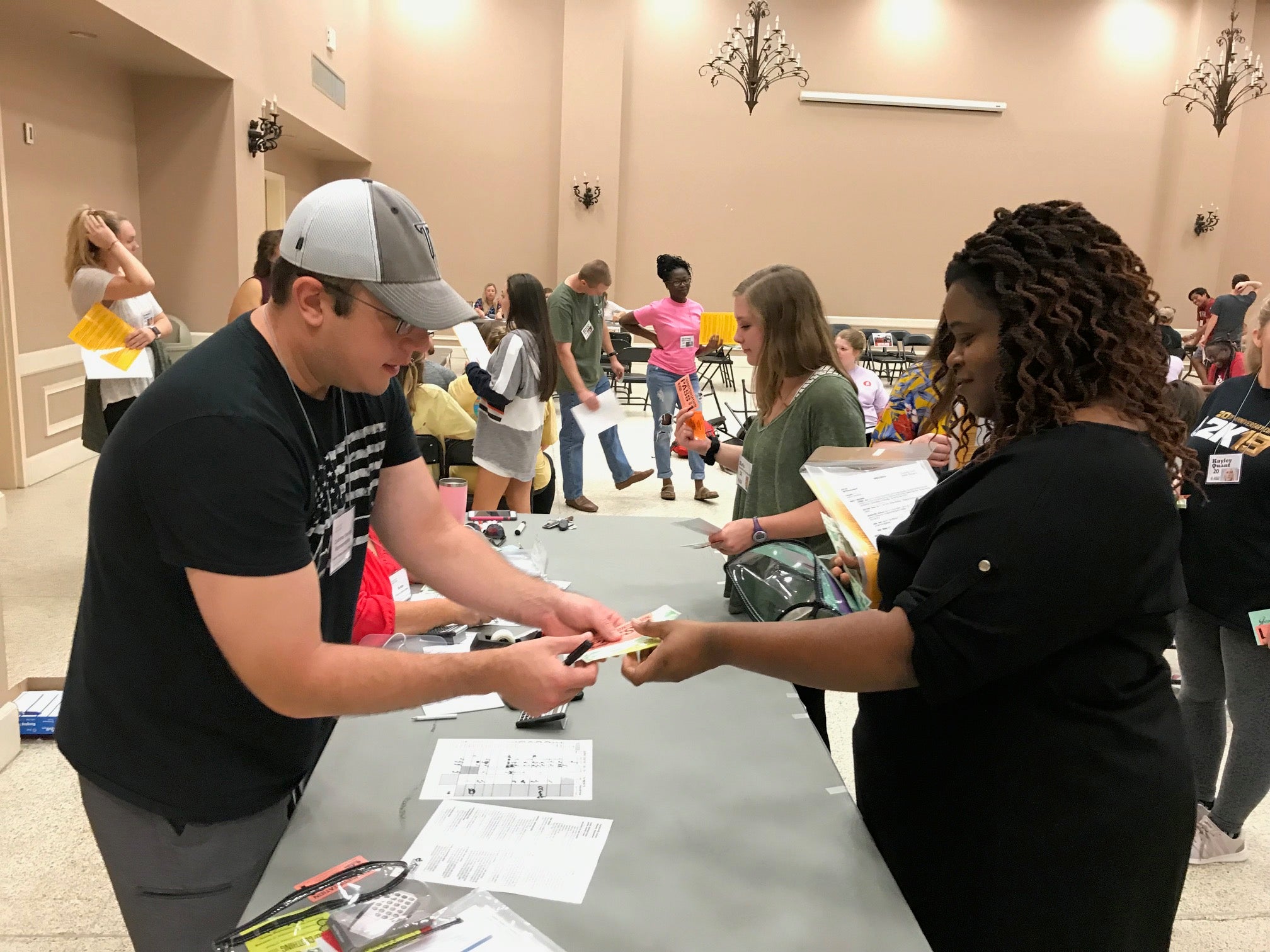Troy University students get glimpse of life in poverty
Published 3:00 am Wednesday, September 19, 2018
Nursing students at Troy University got a firsthand look at what people living in property have to deal with when working with a tight budget.
About 100 nursing students participated in a poverty simulation in the Trojan Center ballrooms Tuesday to step into the shoes of many of their future patients.
Tables were set up around the ballrooms to mimic different businesses and organizations such as the bank, the supermarket, social services, the utilities company, a pawn shop, a church and so on.
The students were divvied up into family groups and given different ages, medical conditions and backgrounds to consider while making ends meet.
Kerri Outlaw, an associate professor in the School of Nursing and the lead faculty for public health, said she wanted nursing students to participate in the program to get a real understanding of what many people in poverty face.
“These nurses are learning how to take care of patients within their communities, especially rural communities,” Outlaw said. “We decided to do a poverty simulation to increase empathy among the students.”
The students had to budget and make do for a full month, compacted into the course of an hour for the sake of time.
Outlaw said it was clear that the students began to really feel the stress and pressure as the end of the month drew near.
“In the first week they were taking more of their time, but as they realized the lines and how long certain things took, you could see they were running everywhere,” Outlaw said.
And in all of that hustle and bustle of making sure food was on the table and the lights were kept on, medical needs were often overlooked.
“One thing I noticed during the simulation was that we had three pregnant women and none of them got any care during the month,” Outlaw said. “We had a couple of people that had strokes and did not get medical care … To be honest, families are working so hard to make ends meet and working to provide for your family, you forget to get care for yourself. That’s an important thing for us to understand going into this industry.”
Outlaw said that is a reality for people dealing with poverty – medical care can get lost in the mix when everything else is so pressing. It is the nurses’ jobs, she said, to be an advocate for patients to ensure they are getting that care that they need.
This is not the first time that Troy University has held a poverty simulation –
This simulation, however, limited the participants to nurses to emphasize the role of healthcare for people living in poverty.
Cellon said the university wants to hold more poverty simulations and incorporate members of the local community for participation as well.
“We talked today about what went well and I think it’s important for any profession that deals with the public – healthcare, education, a nonprofit – to go through this to understand the complexities of poverty and I think that’s something that the simulation allows for,” Cellon said. “I don’t specifically know what that’s going to look like, but we want to offer that as possibility for the community.”





